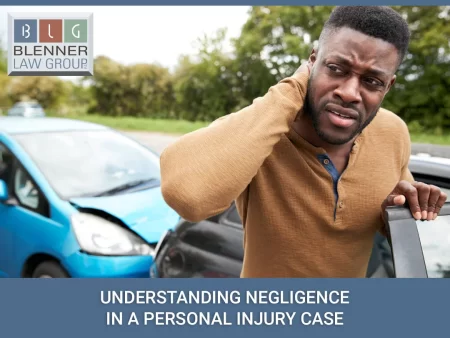 When delving into personal injury law near St. Petersburg, the concept of negligence often takes center stage. It’s the legal principle that if someone’s careless action—or lack thereof—results in another person’s injury, the injured party may be entitled to compensation. Understanding how negligence is defined, established, and proven is crucial for anyone involved in a personal injury case, particularly in the St. Petersburg area.
When delving into personal injury law near St. Petersburg, the concept of negligence often takes center stage. It’s the legal principle that if someone’s careless action—or lack thereof—results in another person’s injury, the injured party may be entitled to compensation. Understanding how negligence is defined, established, and proven is crucial for anyone involved in a personal injury case, particularly in the St. Petersburg area.
What is Negligence?
Negligence is a legal term that refers to a failure to behave with the level of care that someone of ordinary prudence would have exercised under the same circumstances. It involves harm caused by carelessness, not intentional harm. For example, if a driver fails to stop at a red light and consequently hits another vehicle, that driver may be considered negligent.
The Four Elements of Negligence
To prove negligence in a court of law, the plaintiff must establish four critical elements:
1. Duty of Care
The first step is to show that the defendant owed the plaintiff a duty of care. This means that the defendant was obligated to act in a certain way toward the plaintiff. For example, all drivers have a duty to follow traffic laws and drive safely to avoid harming others on the road.
2. Breach of Duty
Once a duty of care is established, the plaintiff must demonstrate that the defendant breached that duty. A breach occurs when the defendant fails to meet the expected standard of care. Running a red light would be a clear breach of the duty to drive safely.
3. Causation
The third element is causation, which connects the breach of duty to the injuries sustained. The plaintiff must show that the defendant’s actions (or inaction) were the actual cause of the injury. This is often referred to as “but for” causation, meaning that for the defendant’s breach of duty, the plaintiff would not have been injured.
4. Damages
Finally, the plaintiff must have suffered actual damages as a result of the breach. This could be physical injury, property damage, emotional distress, and financial losses. Without damages, there is no basis for a claim, even if the defendant was negligent.
Proving Negligence
Proving negligence is not always straightforward. It requires evidence such as eyewitness testimony, expert opinions, and documentation of injuries and losses. Photographs from the scene, medical records, and accident reports can all be crucial in establishing the elements of negligence, especially in densely populated areas like near St. Petersburg.
Comparative and Contributory Negligence
Different jurisdictions handle negligence claims in various ways, particularly when the plaintiff may have been partly at fault for their own injuries. In some states, a system of comparative negligence is used, which reduces the damages a plaintiff can recover based on the percentage of their fault. In others, contributory negligence may apply, which can bar recovery altogether if the plaintiff is found to be even slightly at fault.
Negligence in Different Types of Personal Injury Cases
Negligence can apply to a wide range of personal injury cases, including:
– Car accidents: Drivers may be negligent if they violate traffic laws or fail to pay attention to the road.
– Medical malpractice: Healthcare providers may be negligent if they fail to provide the standard of care that a competent provider would have offered.
– Slip and fall accidents: Property owners may be negligent if they fail to keep their premises safe for visitors.
– Product liability: Manufacturers may be negligent if they produce and sell a product that is defective or unreasonably dangerous.
The Role of Personal Injury Lawyers
Personal injury lawyers specializing in negligence cases are adept at navigating the complexities of negligence law. They help injured parties understand their rights, gather evidence, and present their case effectively. Whether negotiating with insurance companies or representing clients in court, these attorneys are essential in pursuing fair compensation, particularly for those near St. Petersburg.
Conclusion
Negligence is the cornerstone of personal injury law, and understanding these principles is the first step toward seeking justice for those who have been injured due to someone else’s carelessness. If you’re near St. Petersburg and in need of expert legal guidance, Blenner Law Group is equipped with the knowledge and experience to help you navigate the complexities of your case. With their dedicated team, you can hold negligent parties accountable and secure the compensation you deserve for your losses. Contact Blenner Law Group to ensure your rights are protected, and your case is handled with the care it deserves.
Picture Credit: VistaCreate


